-
E-mail
Austin120521@outlook.com -
E-mail
sales@jujiuhouse.com -
Telephone
+86-17864099991 -
Telephone
+86-17854044442
- Chinese
- French
- German
- Portuguese
- Spanish
- Russian
- Japanese
- Korean
- Arabic
- Irish
- Greek
- Turkish
- Italian
- Danish
- Romanian
- Indonesian
- Czech
- Afrikaans
- Swedish
- Polish
- Basque
- Catalan
- Esperanto
- Hindi
- Lao
- Albanian
- Amharic
- Armenian
- Azerbaijani
- Belarusian
- Bengali
- Bosnian
- Bulgarian
- Cebuano
- Chichewa
- Corsican
- Croatian
- Dutch
- Estonian
- Filipino
- Finnish
- Frisian
- Galician
- Georgian
- Gujarati
- Haitian
- Hausa
- Hawaiian
- Hebrew
- Hmong
- Hungarian
- Icelandic
- Igbo
- Javanese
- Kannada
- Kazakh
- Khmer
- Kurdish
- Kyrgyz
- Latin
- Latvian
- Lithuanian
- Luxembou..
- Macedonian
- Malagasy
- Malay
- Malayalam
- Maltese
- Maori
- Marathi
- Mongolian
- Burmese
- Nepali
- Norwegian
- Pashto
- Persian
- Punjabi
- Serbian
- Sesotho
- Sinhala
- Slovak
- Slovenian
- Somali
- Samoan
- Scots Gaelic
- Shona
- Sindhi
- Sundanese
- Swahili
- Tajik
- Tamil
- Telugu
- Thai
- Ukrainian
- Urdu
- Uzbek
- Vietnamese
- Welsh
- Xhosa
- Yiddish
- Yoruba
- Zulu
- Kinyarwanda
- Tatar
- Oriya
- Turkmen
- Uyghur

Buy prefabricated expandable container house
Exploring the World of Prefabricated Expandable Container Houses
There's a growing buzz around the concept of prefabricated expandable container houses. These structures, seen as the future of sustainable and efficient living, have piqued the interest of many. However, misconceptions abound, ranging from doubts about their durability to questions about customization possibilities. Let’s dive deeper into this fascinating world, sharing real-world insights and expertise along the way.
Understanding the Basics
To start with, it's crucial to grasp what makes a prefabricated expandable container house stand out. Unlike traditional builds, these units are designed off-site and then delivered for quick assembly. This approach drastically reduces construction time and labor costs, a significant draw for many potential buyers. But, there's more beneath the surface, particularly when you consider companies like Shandong Jujiu Integrated Housing Co., Ltd., which spearhead innovative designs in this realm.
One of the major appeals is the flexibility in design. Many worry about limited customization, imagining a generic, one-size-fits-all model. Yet, in reality, providers like Shandong Jujiu allow for extensive personalization options, ensuring your home reflects your style and needs. This isn't just about plopping a box on the ground; it's about crafting a space that feels like home.
Moreover, the environmental impact can't be overlooked. By utilizing existing container structures, the carbon footprint of traditional construction is significantly lowered. A friend who recently transitioned into one remarked, “It’s refreshing to know my home doesn't just look modern but also aligns with my eco-conscious values.”
Real-Life Applications and Challenges
These homes aren't just theoretical concepts; they're already being used in various situations, from emergency housing in crisis zones to luxury wilderness cabins. A fascinating project I once observed involved transforming several units into an educational center in a remote community. The accessibility of these homes allowed for rapid implementation where traditional construction would've been impossible.
Nonetheless, challenges persist. One notable issue arises with zoning laws and permits. Many regions still lack clear regulations for these structures. An acquaintance recounted their frustrating experience of navigating local bureaucracies to get approvals. Patience and due diligence are your best allies here.
A second challenge is insulation. While companies like Shandong Jujiu are making strides with improved materials, it's a factor worth considering, especially in extreme climates. Proper planning and smart choices in insulation can mitigate potential discomfort.
Cost Considerations
Cost is often a primary consideration for anyone interested in these homes. At first glance, the price tag might seem attractive. A basic unit can be surprisingly affordable compared to conventional housing. However, it's essential to account for the extras, such as shipping, installation, and any customization.
On the brighter side, the savings in construction time indeed translate to lower overall costs. A colleague shared how their project wrapped up months earlier than expected, allowing them to redirect funds into landscaping and interior design.
It's a balancing act between the immediate affordability and the long-term value. As with any investment, it’s essential to do thorough research, perhaps starting with a visit to platforms like Shandong Jujiu's website to explore options and get a clearer financial picture.
Future Trends
The future looks promising for prefabricated expandable container houses. There's a shift towards integrating smart home technologies seamlessly within these structures. Imagine a home that not only expands to meet your spatial needs but also adapts technologically to your lifestyle. This isn't far off, with companies already experimenting with IoT integrations.
Moreover, as urban environments become increasingly complex and space constrained, these homes offer an adaptable solution. Their stackable nature allows for vertical expansions in areas where horizontal space is limited. I’ve seen projects in crowded cities where container homes are stacked to create unique multi-level living spaces.
The possibilities seem endless. As these containers evolve, they will likely reshape our understanding of not just housing but community development. They present opportunities for sustainable solutions in an ever-expanding, resource-conscious world.
Final Reflections
Ultimately, buying a prefabricated expandable container house is more than just a transaction. It's about embracing a new way to live and engage with our environment. It offers a chance to blend innovation with practicality, sustainability with personalization.
For someone looking to explore, the journey itself is rewarding. Each step—from planning to completion—offers learning and opportunity to forge something uniquely yours. And with industry leaders like Shandong Jujiu leading the charge, the future of living has never looked more exciting.
So, whether you're intrigued by the potential savings, the environmental benefits, or the novel design possibilities, this sector offers a fascinating glimpse into what's possible when we rethink traditional living spaces.
Related products
Related products
Best selling products
Best selling products-
 Factory Direct Sales Office Folding Container Luxury House Living Container House
Factory Direct Sales Office Folding Container Luxury House Living Container House -
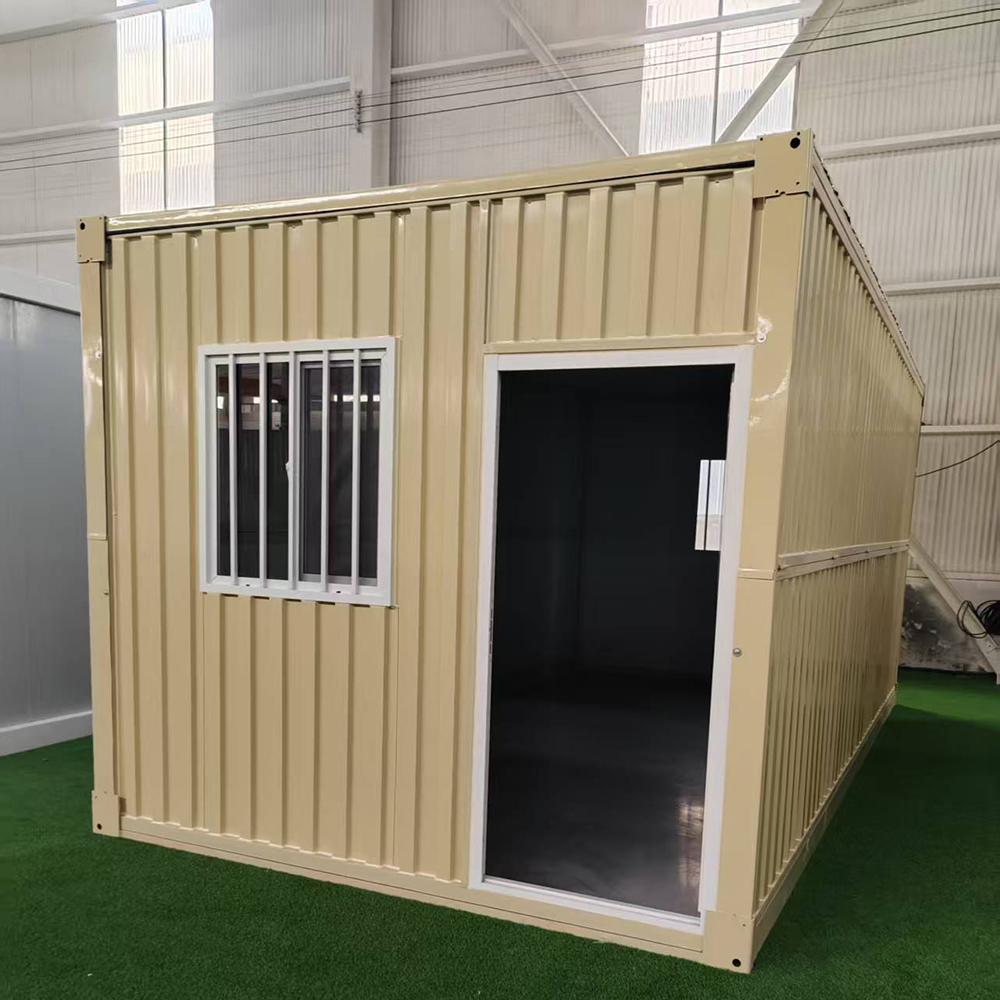 Competitive Price Portable Container House Foldable Container Mobile Living Modular Homes
Competitive Price Portable Container House Foldable Container Mobile Living Modular Homes -
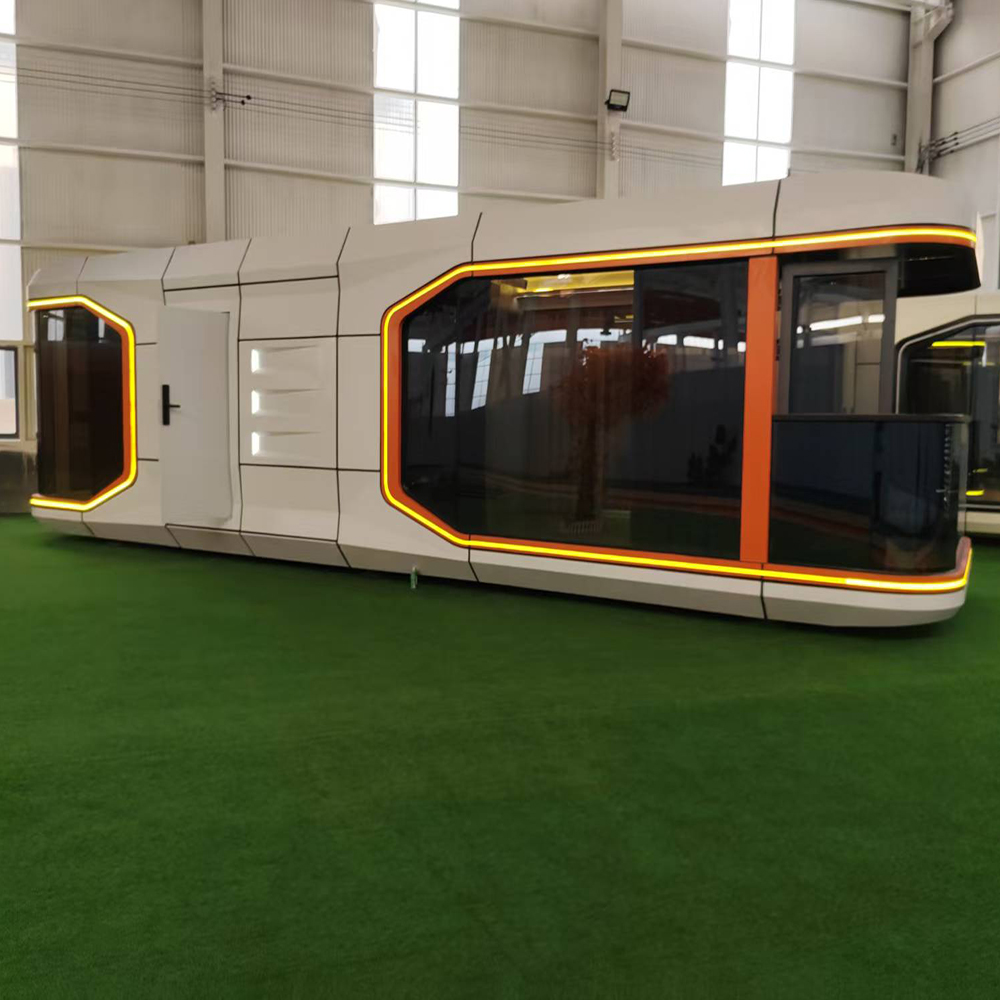 Standard Modern Camping Pod Space Prefabricated Portable Mobile Capsule Room Hotel Bathroom Prefabricated Spaceship House
Standard Modern Camping Pod Space Prefabricated Portable Mobile Capsule Room Hotel Bathroom Prefabricated Spaceship House -
 A container house with a terrace and double-wing folding design, suitable for various purposes such as offices, meeting rooms, living rooms, etc.
A container house with a terrace and double-wing folding design, suitable for various purposes such as offices, meeting rooms, living rooms, etc. -
 Dual-Wing Folding Container House: Fast Assembly, Space-Saving & Multi-Scene Adaptable
Dual-Wing Folding Container House: Fast Assembly, Space-Saving & Multi-Scene Adaptable -
 Hot-selling foldable container houses, expandable prefabricated houses, suitable for office or living use, with fast delivery.
Hot-selling foldable container houses, expandable prefabricated houses, suitable for office or living use, with fast delivery. -
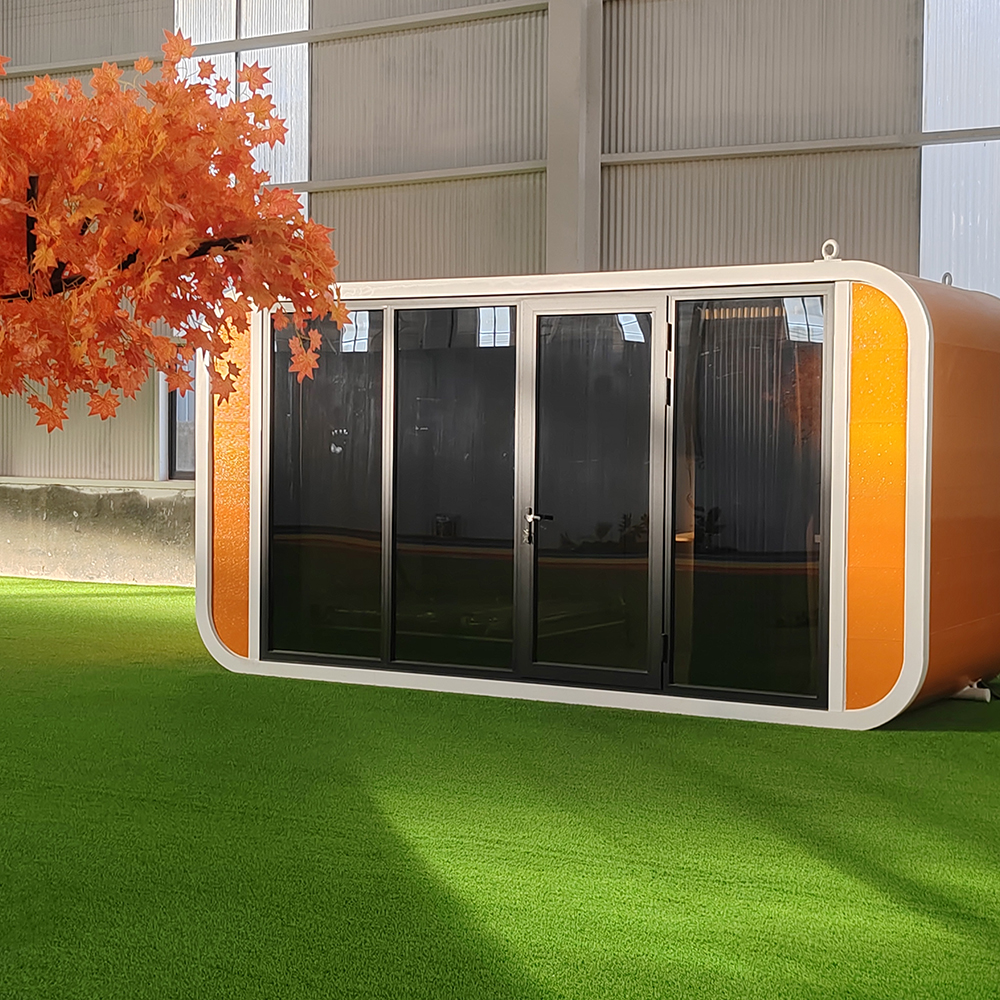 Luxury Prefabricated Living Container House Modular Glass Tiny House Prefab Container Home Apple Cabin
Luxury Prefabricated Living Container House Modular Glass Tiny House Prefab Container Home Apple Cabin -
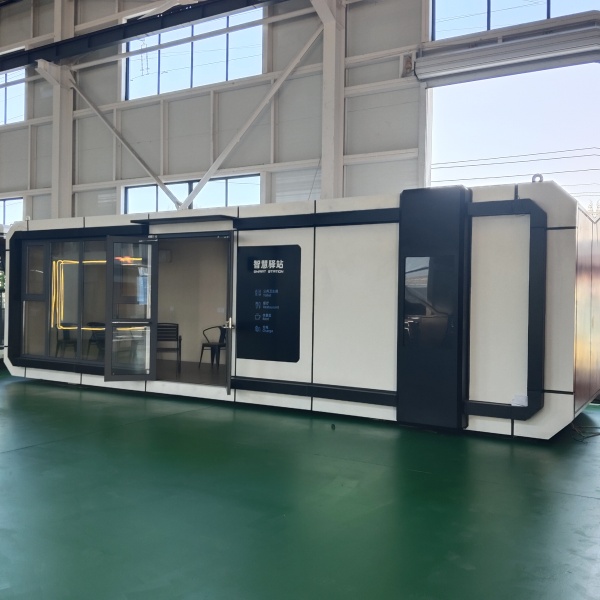 Modular modern movable apple cabins, customized high-end folk houses and portable bedrooms, delivered as a whole
Modular modern movable apple cabins, customized high-end folk houses and portable bedrooms, delivered as a whole -
 Movable Prefabricated Container House Villas Modular Portable Homes 1 Bedroom Container House Offices Apartments
Movable Prefabricated Container House Villas Modular Portable Homes 1 Bedroom Container House Offices Apartments -
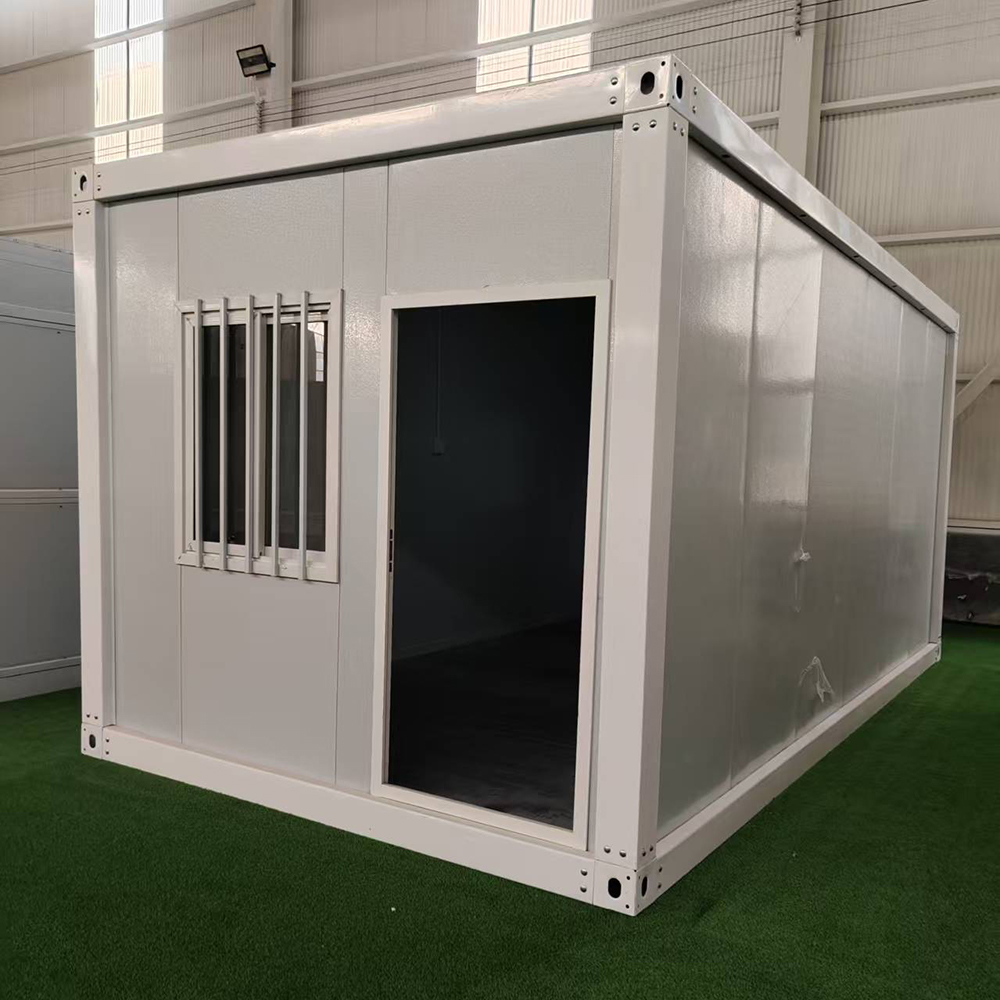 Folding Container Moving House Modular Office Container House Prefab Container for Outdoor Use
Folding Container Moving House Modular Office Container House Prefab Container for Outdoor Use -
Two Wing Folding Expandable Container House
-
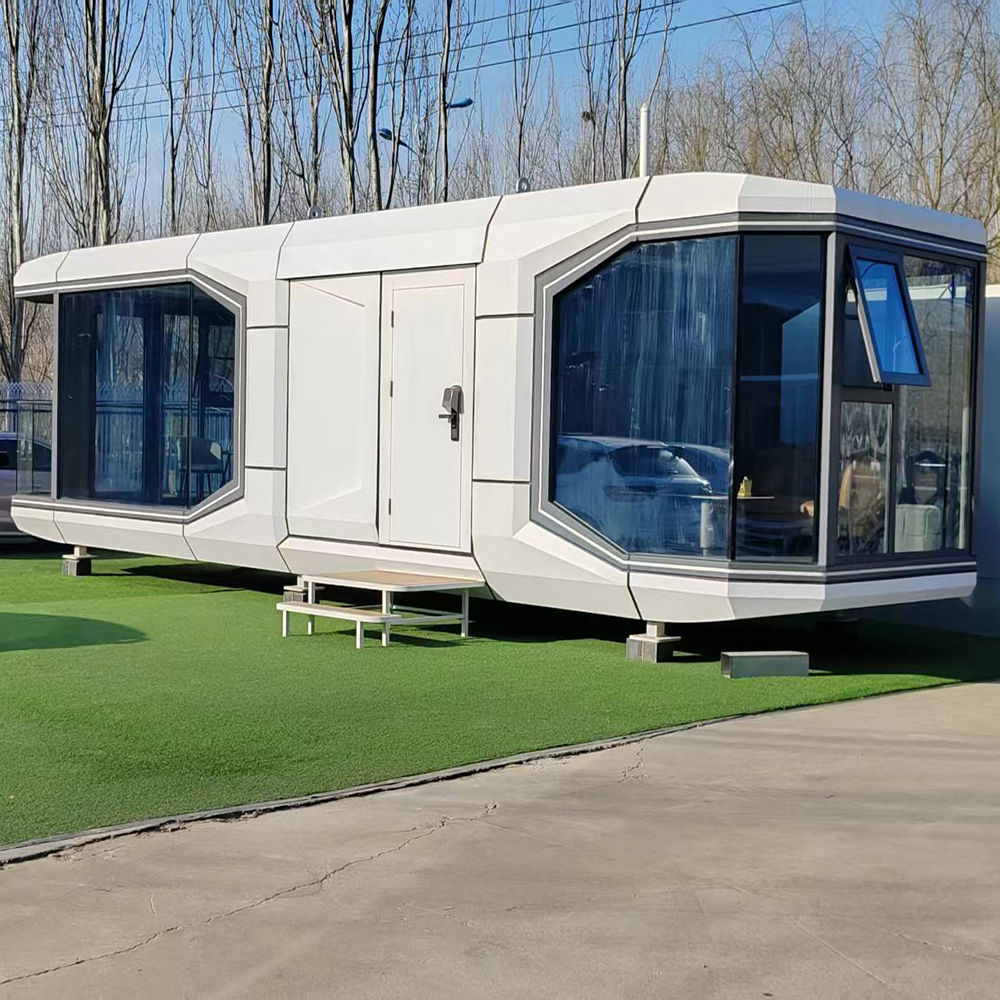 Luxury High Quality 2 Bedroom Container Home Prefabricated Steel Space Capsule for Office Shop Hotel or Outdoor House
Luxury High Quality 2 Bedroom Container Home Prefabricated Steel Space Capsule for Office Shop Hotel or Outdoor House
Related search
Related search- Buy folding caravan container house
- folding container house for sale
- Buy apple cabin prefab homes
- China expandable house container
- China prefabricated expandable container house
- Buy capsule house commercial space
- Buy homes that fold out
- fold out house on trailer
- China space capsule villas
- wholesale expandable container house 40ft luxury










